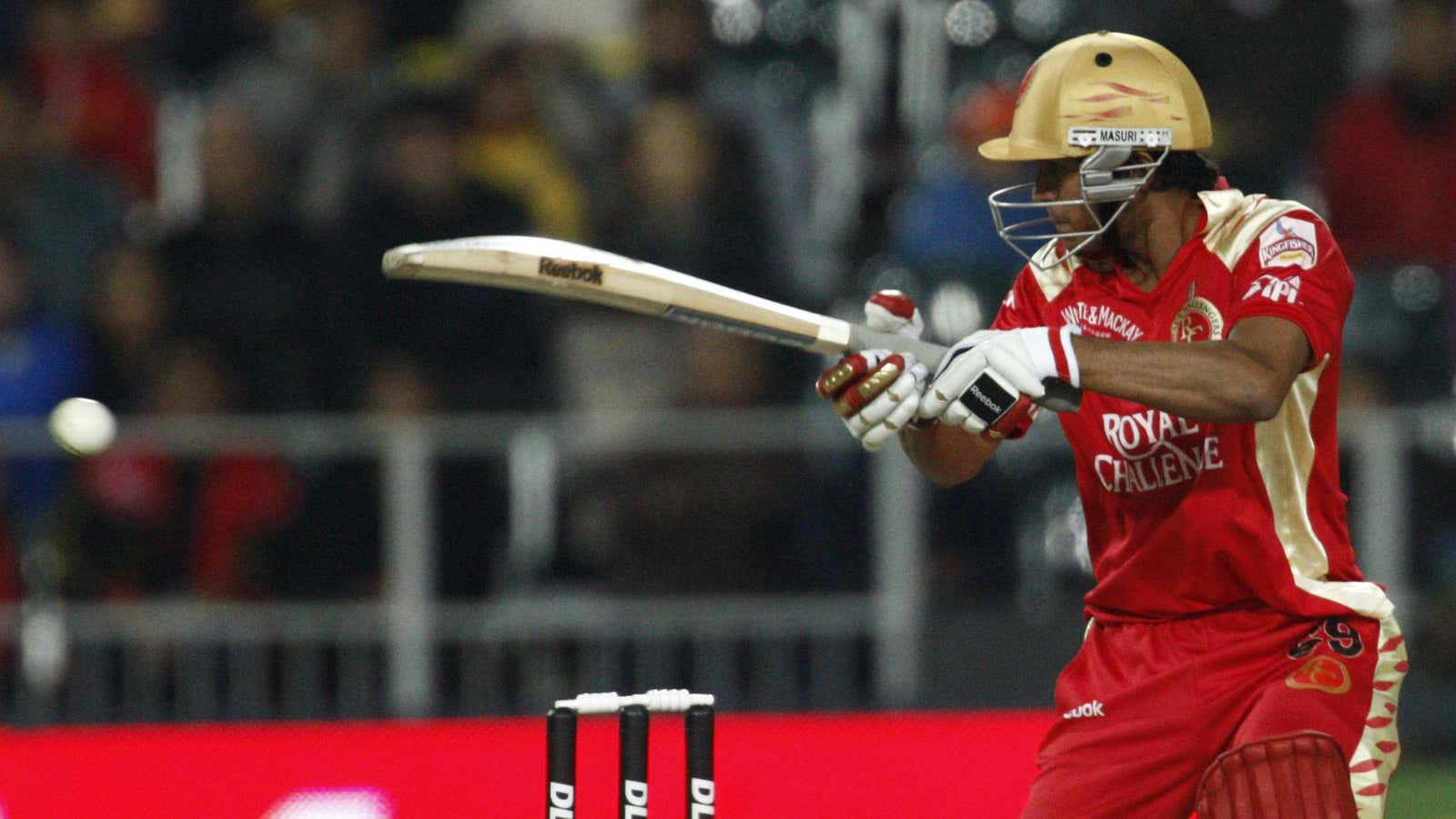By now, the world has noticed the disaster in India. More than 300,000 new daily infections (that we know of); a lack of hospital beds, vaccines, and oxygen supplies; and bodies cremated wherever grieving relatives can find space.
Alongside this, the multibillion-dollar Indian Premier League (IPL) cricket tournament carries on, with some of the world’s best players, along with support staff, TV crews, and the entire machinery of a major sporting event—except spectators—still moving around the country in Covid-secure bubbles. Medical resources are severely limited in India, and questions are being raised about whether any should be diverted to athletes rather than desperate patients.
What is the Indian Premier League?
The IPL was created in 2008, as a way to monetize a shorter, more television-friendly version of the world’s second most popular sport, in its modern economic heartland. Global superstars eagerly signed up for huge fees, by the usual standards, and the league revolutionized the dynamics of the game.
There are eight IPL teams, with US-style names—among them, the Punjab Kings and the Kolkata Knight Riders—that are owned, or at least fronted, by megastars like actor Shah Rukh Khan. The 2021 season began on April 9, and its 60 games are scheduled to be completed by May 30.
Players are keeping their eyes on the ball
Although they don’t sign checks or deal with sponsors, star players hold a great deal of political power in any sport; there was an uprising within soccer against the European Super League last week, and many prominent US athletes have become activists. But most IPL players are keeping their heads down and getting on with it.
Some overseas players have already left the IPL and gone home; others would probably like to leave, but are subject to travel restrictions. Australian Pat Cummins was praised for sticking around, making a large donation, and expressing sympathy with India on social media. The Rajasthan Royals today (April 29) announced a donation of more than $1 million to Covid relief efforts, while another team, the Delhi Capitals, is giving $200,000.
But Indian players aren’t saying much. National team captain Virat Kohli—who’s from Delhi, the epicenter of the crisis—is solely focused on the games, judging by his social media. It’s not easy to be a public figure in India, especially if it might involve criticism of a notoriously sensitive government. Indian cricket’s governing body is run by Jay Shah, who happens to be the son of the powerful home minister, Amit Shah.
The games continue elsewhere
In January, England suffered its own Covid disaster. While it wasn’t at the scale of India, more than 2,000 people were dying every day at its peak, and the health service was under strain. But soccer had come back, and stayed—like the IPL, it is a possible oasis of escapism and optimism, and players have undergone a rigorous testing and isolation regime so that they can honor lucrative TV contracts for a locked-down audience.
In the US, the National Football League’s season was similarly successful last autumn, while this year’s Tokyo Olympics and European Football Championships are still going ahead, and even hoping to welcome spectators to stadiums. In that context, and although it is not taking place in Europe, the US, or Japan, the IPL is far from anomalous.
